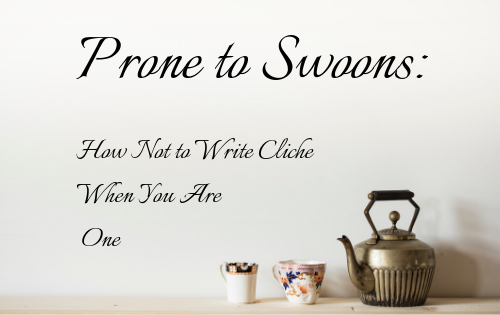
How Poetic is Too Poetic? A Review of The Yearling by Marjorie Kinnan Rawlings
All prose can be poetry. This was my most meaningful takeaway from the poetry course I took during my undergrad. Before this class, I hadn’t really considered myself a poet. I was an aspiring novelist and I saw no real need to diversify, but I took the class because I was less interested in playwriting, and out of those two options, one was required. This isn’t to say that I’d never written poems before I took this class, but when I did, it was usually when a pet died. Poetry was the language I turned to instinctually. Why?
Perhaps because, in my experience, poems were pithy and condensed like bouillon. I could say as much as I needed to say in a handful of lines for my meaning to spread like soup, healing and hearty. Emotion could resonate between syntactic notes, linger in the aftertaste of metaphor. Poetry was a tonic.
In Defense of Literary Writing
After finishing The Yearling by Marjorie Kinnan Rawlings a few days ago, I logged into GoodReads to update its status on my running list of “to-reads” and offer up my 5 stars. The book was recommended to me by a friend and educator, and as a Pulitzer Prize winner, it lived entirely up to the expectations that were set for me. I will enthusiastically call it a narrative and literary masterpiece, which is why encountering an emphatic 1-star review by a self-described bibliophile purely fascinated me. They hated The Yearling and their review was a litany of tormented gif reactions. They called the writing poor and indescribably boring and the characters unlikeable.
Though I’ve had my GoodReads account for a while now, I’m pretty new to actually using it or anticipating the massive and eclectic crowd that populates it. For an instant I couldn’t believe what I was seeing, but then again, on reflection, it made sense. Absolutely nothing can be to everyone’s liking, even a lauded American classic. It’s heavy with omniscient description while bound to the ambling and impulsive lens of a prepubescent boy. Additionally, Rawlings’ use of “eye dialect,” the use of nonstandard spelling to emphasize variant pronunciation, makes the dialogue vibrant and challenging (the reviewer in question seemed to assume the book was poorly edited).
Penny said, “Jest keep your eyes open. You’re all right as long as you see a creetur first and don’t take him by surprise. Even that rattlesnake that got me, why, I takened him by surprise and he wasn’t no more’n lookin’ out for hisself.”
Ma Baxter said, “You’d stick up for the devil hisself.”
“I reckon I would. The devil gits blamed for a heap o’ things is nothin’ but human cussedness.”
(pg. 164)
For me, literary writing is indulgent, experimental, layered. It’s not just to be enjoyed, but to be investigated and unpacked. Studied. That’s how I define it anyway. I consider it in many ways to be prose poetry.
Since publishing The Music of Pedro, I’ve received praise and criticism for the same thing: it’s (too) poetic. What some found enjoyable, another found tedious. I can account for it. I wrote a long book and tried to make the entire thing a poem. And poetry isn’t for everyone. Each one, after all, is a type of riddle, in my opinion—to be puzzled out and plumbed. In fact, I very much find poetry challenging both to write and interpret, but the rewards of engaging are commensurate with the effort.
The Friction-Point of Wonder and Reality
“Challenging” is a choice word for The Yearling, which is a novel-length poem in its own right. It’s a challenge to get through, and not just academically—it guided me on bloody hunts through the Florida frontier, coaxed me through florid descriptions of setting, attending to each botanic and practical detail (I could probably use this book to survive in the Florida wilds; it’s a veritable field guide), and wrenched me over the harsh terrain of human loss, loneliness, and transformation.
In fact, I’d say it’s a book that seeks to transform, as a year reinvents a person season by season, or at least offers up the opportunity by making an example of nature’s interminable cycle of death and bloom. Recurrently, it delves the friction-point of wonder and reality and finds the unanswerable loneliness of our simple and fleeting mortal moment:
Jody stopped short with his hand on the fawn’s head. A horseman with a helmet was riding through the moss. Jody took a step forward, and horse and rider vanished, as though their substance were no thicker than the moss. He stepped back and they appeared again. He drew a long breath. Here, certainly, was Fodder-wing’s Spaniard. He was not sure whether he was frightened or no. He was tempted to run back home, telling himself that he had truly seen a spirit. But his father’s stuff was in him, and he forced himself to walk forward slowly to the spot in which the apparition had appeared. In a moment the truth was plain. A conjunction of moss and limbs had created the illusion. He could identify the horse, the rider and the helmet. His heart thumped with relief, yet he was disappointed. It would be better not to have known, but to have gone away, believing.
(pg. 180)
So should you read The Yearling? Will it challenge and uproot you? Will you need to finish it alone so you can ugly cry into your pillow in peace? My answer, in a single gif:




